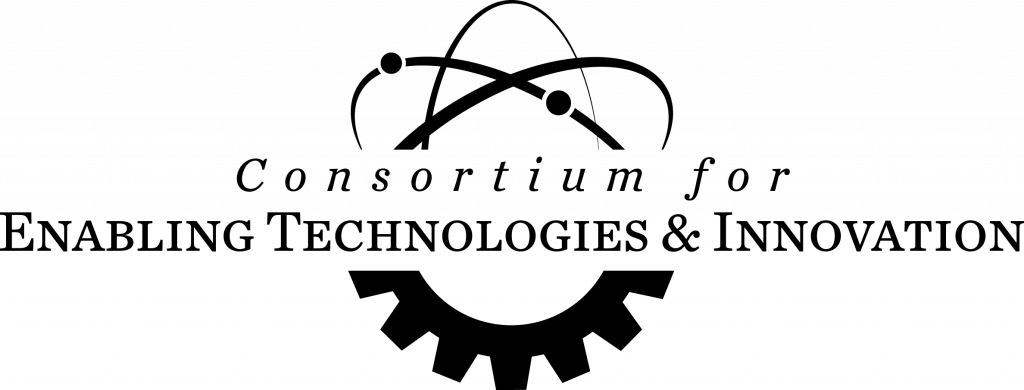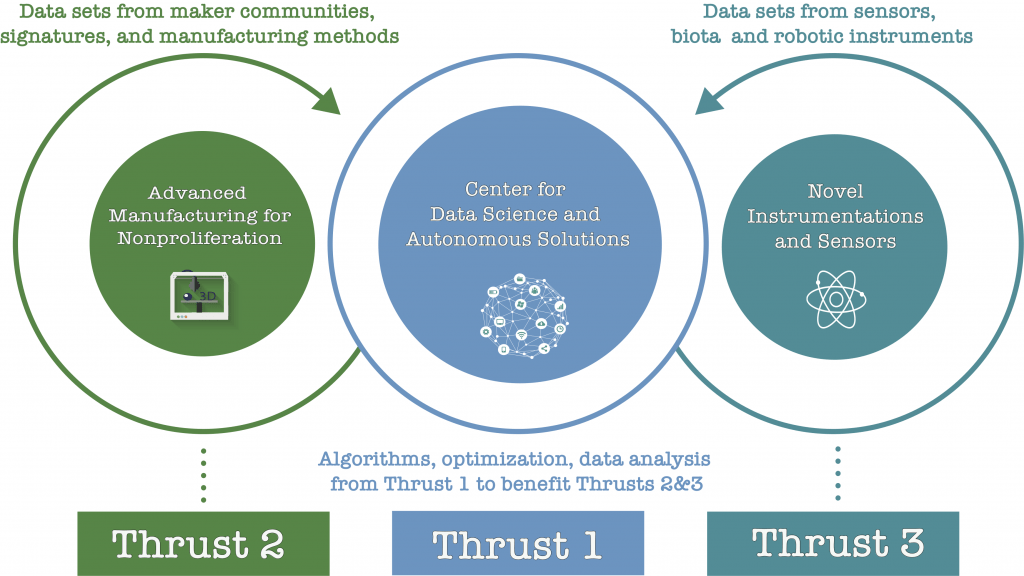Looking for the ETI 2.0 website?
2025 ETI Summer School — what a productive week!
The 2025 ETI Summer School on Advanced Reactor Design, Nonproliferation, and Fuel Cycle Monitoring was held in-person at Georgia Institute of Technology, Atlanta, GA, and Oak Ridge National Laboratory, TN, August 4 – 8, 2025. Students and researchers of all academic levels were invited to apply. About 15 applicants from U.S. universities and national labs, including undergraduate, graduate students and scientist researchers, were approved to participate this summer school.
In this summer school, cross-cutting technologies across core disciplines were explored to train the next-generation of nuclear innovators, including safeguards, global security, new reactors and new challenges, 3D printing to rapid prototyping, and machine learning for nonproliferation. Comprehensive lab demonstrations, hands-on activities, and tours were also conducted, including travel to ORNL. Check here for more details!
2025 ETI Workshop successfully concluded!
ETI consortium successfully hosted its final Annual Workshop on February 04, 2025, at the Historic Academy of Medicine (875 W Peachtree St NW, Atlanta, GA 30309), Georgia Institute of Technology. About 70 participants representing university partners, national laboratories, and the government joined together to review and strengthen the research collaborations between the labs and the universities. The workshop also enhanced the collaborative research and education environment to support cross-cutting technologies across three thrust areas for nuclear nonproliferation!
Thank you for your contribution to the team, which will hopefully thrive beyond the ETI lifespan, and look forward to the continuation of this fruitful and stimulating collaboration!
Innovation is exploration of uncertain and unfamiliar space. In ETI consortium, we place a special emphasis on innovation through our research, education of the next generation of scientists, and broad outreach activities. Reflecting on the achievements of the past year in ETI consortium, this 2025 Newsletter highlights a combination of creativity, resourcefulness, and discipline leading the success of various initiatives.
You can find:
- 2024 ETI Newsletter here.
- 2023 ETI Newsletter here.
- 2022 ETI Newsletter here.
- 2021 ETI Newsletter here.
- 2020 ETI Newsletter here.

The core mission of the Consortium for Enabling Technologies and Innovation (ETI) is to direct the multidisciplinary research and innovation that enable the technologies to train the next-generation of human capital, and to bridge the gap between the university basic research and NNSA national laboratories’ mission-specific applications. The ETI Consortium is composed of 14 institutions of higher education and 12 national laboratories committed to promoting the spirit of collaborative intelligence.

Overall Goals
The overarching goal of this Consortium is to create a research and education environment to support cross-cutting technologies across three core disciplines: the umbrella of (1) computer and engineering science research specifically in a form of machine learning and high performance computing (HPC) will support and enhance (2) advanced manufacturing and (3) nuclear detection technologies.

We are looking to employ predictive strategies to enhance our understanding of tomorrow’s needs in nuclear nonproliferation. The core of the research expenditures is directed at student education and support in order to grow the next generation of nonproliferation scientists with strong connections to national laboratories.


